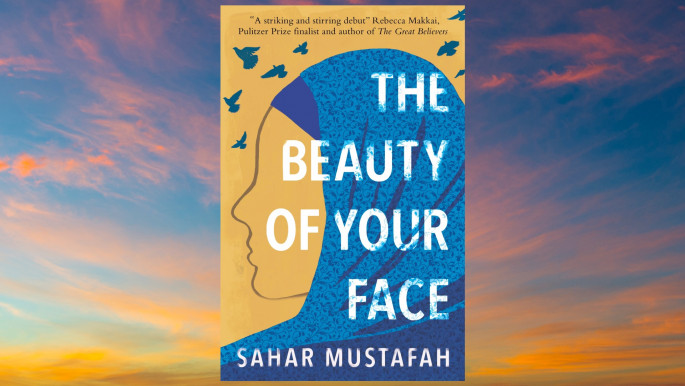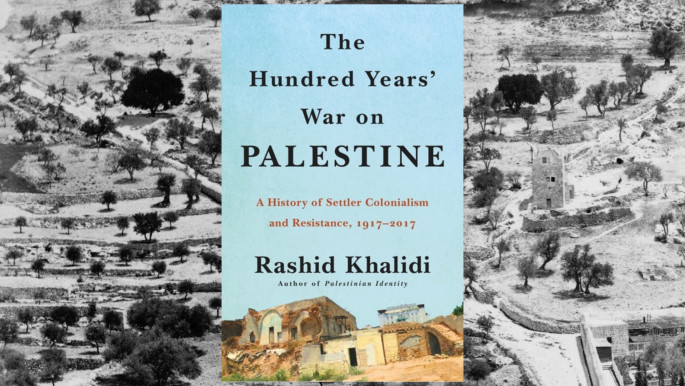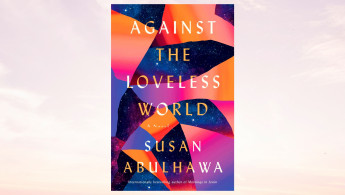Against the Loveless World by Susan Abulhawa
Against the Loveless World was shortlisted for the 2020 Palestine Book Awards, now in their 9th year, winning the Creative Award earlier in November.
The novel's principal character is Nahr, the daughter of refugees born in the 1970s in Kuwait, her family's temporary abode. Nahr, when the reader first meets her, is confined to what she calls the 'Cube', a state of the art, nine-square-meter Israeli prison cell that she shares with spiders and ants.
She describes the 'Cube' as a "technological marvel", indicating the intricate methods that Israel employs to oppress Palestinians. Nahr names her shower Attar. He is temperamental and unpredictable, but she considers him her lover and friend. Within this state of confinement there's no sense of time, and Nahr doesn't know how long she's been imprisoned for.
Early in the novel she remarks: "It contains, instead, a yawning stretch of something unnamed, without present, future, or past, which I fill with my imagined or remembered life." She hasn't been in touch with her family for years and her only visitors are reporters who "don't actually want to listen to me or hear my thoughts, except where I might validate what they already believe."
 |
Within the core of Susan Abulhawa's heart-rending novel lies a simple truth: we unravel in love, thoroughly and exquisitely |  |
Nahr's critical observation of writers and reporters is a subtle nudge in the direction of the reader to pay attention to the details of her life and take her account seriously, especially if it requires adjusting your worldview.
The plot of Against the Loveless World is, essentially, rooted in the introspections of Nahr as she revisits the major events and people that have shaped her journey and effectively landed her in the 'Cube'. We observe the inner world of this fierce, strong-willed and unflinching woman as she, though born displaced in Kuwait, is once again displaced to Jordan and later repatriated to Palestine.
As the story unfolds, Nahr moves through Kuwait, Lebanon and Palestine and her life intersects with people who impact her in various ways. The narrative structure is punctuated with short chapters set in the 'Cube' where she reminisces about the past, comments on events that have happened to her and analyses her new reality.
 |
|
| Read more from TNA's Book Club: The Beauty of Your Face by Sahar Mustafah |
Each of these chapter titles situate the prison cell from a different direction and perspective, so that collectively as the story progresses and the character's journey materialises, so does the structure of the 'Cube'.
It is a novel in the process of formation; the narrative constructs the walls and the space of Nahr's prison cell. This manifests powerfully to the reader because, figuratively speaking, it reflects how our actions and choices lay down the foundational structure of our future.
And while the 'Cube' contains intense loneliness, isolation, and the fraying of the mind and the self, Nahr would probably not live her life any differently if she had the choice. She is a revolutionary, after all, and this story is the arc of her journey through displacement, devastation, love and rebellion.
Love, the lack of it or the showering of it on an individual, can make or break a soul. Nahr's journey is a testament not only to the displacement of Palestinians, but to the love that binds and sustains the Palestinian community through the anguish they've had to become familiar with. Being "alone and lost" is a habitual feeling for Nahr, until she visits Palestine and meets Bilal, a hero and the brother of the man who abandoned her.
Bilal's inner circle of friends - also rebels - is, at first, alienating for Nahr, who feels like an interloper and sees belonging and acceptance as an illusion. As time passes and she becomes a more integral part of their rebellion, participating in their plans and contributing valuable ideas, Nahr discovers an essential part of herself.
"I'd left (Palestine) with a sense of my worth as a woman who could engage with the world intellectually, who could love and be loved; a woman who could understand that the vast outdoors was more beautiful than anything humans could make. I dared to imagine being part of something as important as resistance and national liberation."
 |
Nahr's journey in the novel is a testament not only to the displacement of Palestinians, but to the love that binds and sustains the community through their anguish |  |
Nahr's developing connection with Palestine and the growth that comes out of it isn't reduced to simply a sense of spiritual awakening that we often see in stories of repatriation.
Abulhawa's novel presents us with a cast of incredible female characters who have experienced some of the worst manifestations of patriarchy and colonialism, of exile and repatriation. Nahr restructures and recreates a life that has been brutalised and traumatised. She is not exactly unwilling to see herself as a victim, for she is well aware of the parts of her that are broken and mangled, but she refuses to submit to the narrative of victimhood. Instead, Nahr chooses life and the fight for dignity and liberation.
Like a magnet she draws all eyes when she dances and lets the rhythm of the music guide her. Her mother and grandmother are living their own versions of a displaced life; Nahr's Mama finds purpose in Palestinian tatreez (embroidery) and creates beautiful dresses that celebrate her heritage.
 |
|
| Read more from TNA's Book Club: The Hundred Years' War on Palestine by Rashid Khalidi |
Meanwhile Sitt Wasfiyah has been abandoned by her own children and plays the role of the family matriarch in her late son's home. Um Buraq is another complex and paradoxical character who brings both turbulence and respite to Nahr's life. Their relationship is a fascinating aspect in the story that complicates notions of morality and patriarchal exploitation of women.
The title of the novel, Against the Loveless World, is inspired by American novelist James Baldwin, who wrote, "Here you were: to be loved. To be loved, baby, hard, at once, and forever, to strengthen you against the loveless world." Love is strength. Love is the centre of this complicated story and it is the answer.
Bilal explains this sentiment to Nahr, "I think he (Baldwin) just means that we should fortify ourselves with love when we approach them. It is more about our own state of grace, of protecting our spirits from their denigration of us; about knowing that our struggle is rooted in morality, and that the struggle itself is not against them as a people, but against what infects them - the idea that they are a better form of human, that God prefers them, that they are inherently a superior race, and we are disposable."
Nahr contemplates Baldwin's words in this tender scene. "My mind lingered on that sentence because I knew that, despite everything, I was loved. I was loved hard. At once and forever against the loveless world." Within the core of Susan Abulhawa's heart-rending novel lies a simple truth: we unravel in love, "thoroughly and exquisitely".
Sumaiyya Naseem is a Bookstagrammer and freelance writer and editor who specialises in Middle Eastern and Muslim stories. In 2019 she joined the Reading Women Podcast as a guest contributor to talk about South Asian and Middle Eastern narratives.
Follow her on Instagram: @sumaiyya.books
The New Arab Book Club: Click on our Special Contents tab to read more book reviews and interviews with authors:
 |
|



